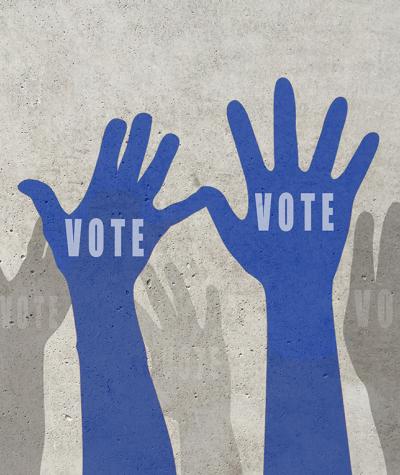In 2016, California took a significant step forward in the fight for everyone to be represented and have a say in our democracy with Senate Bill 1107 (SB 1107). The 2016 law paved the way for California’s state and local governments to establish public financing programs to support candidates running in state and local elections.
On Thursday, March 14, Campaign Legal Center (CLC) requested leave to file a friend-of-the-court brief on behalf of California Common Cause, the League of Women Voters of California, and California Clean Money Campaign in support of SB 1107 and public financing generally.
Public financing programs offer a versatile and powerful tool for state and local governments to improve the integrity and accessibility of their elections. They can restore balance to a system dominated by wealthy special interests by making it possible for average citizens to run for office without having to rely on wealthy donors and lobbyists to fund their campaigns.
When the California legislature approved SB 1107, it did so to preserve the fundamental good-government purposes of the Political Reform Act of 1974 (PRA), the state’s signature campaign reform and anti-corruption measure originally passed in the wake of the Watergate scandal.
Since it was approved by state voters nearly a half century ago, the PRA has sought to make California’s elections more fair, competitive, and equitable. To remain effective as campaign practices evolve over time, the PRA allows legislative amendments so long as they are approved by two-thirds of the legislature and “further the purposes” of the PRA.
The PRA’s purposes are enumerated in the law itself, and include:
- Combatting political corruption by reducing candidates’ reliance on large contributions from lobbyists and special interests “who thereby gain disproportionate influence over governmental decisions,”
- Creating more responsive state and local governments that serve “citizens equally, without regard to their wealth,”
- Ensuring fair elections by abolishing “laws and practices [that] unfairly favor incumbents.”
Today, political candidates rely ever more on money from large donors and wealthy special interests, drowning out the voices of everyday Californians and undercutting the PRA’s express purposes.
By enabling California’s state and local governments to adopt public financing, SB 1107 seeks to reverse this trend and advance the PRA’s express objectives—which include fostering elected officeholders’ responsiveness to their constituents, preventing political corruption, and reducing the unfair advantages of incumbency—in the context of today’s political realities.
The Howard Jarvis Taxpayers Association (HJTA) challenged the law in December 2016, and the trial court ruled in favor of HJTA. The lower court deemed the law invalid on the basis that it does not further the purposes of the PRA, which it concluded had been impliedly amended by Proposition 73.
Proposition 73 was a 1988 package of campaign finance reforms aimed at restraining campaign spending and curbing the influence of large donors. Among other things, Proposition 73 amended the PRA to prohibit public financing. However, as CLC explains in its friend-of-the-court brief, Proposition 73 should not be read to have silently amended the PRA’s express purposes.
The California Supreme Court ruled in 1992 that “it seems obvious that public money reduces rather than increases the fund raising pressures on public office seekers and thereby reduces the undue influence of special interest groups.”
As a result, the court decided that the ban did not apply to charter cities like Los Angeles, Berkeley, Oakland, and San Francisco, because the ban did not “enhanc[e] the integrity of the electoral process.”
In light of these very principles, SB 1107 amended the PRA to permit all state and local entities to adopt public financing programs that meet certain criteria.
Now, the State of California is seeking to reverse the trial court’s ruling, which effectively eviscerates the Legislature’s ability to amend the PRA to carry out its declared purposes. CLC’s brief, submitted on behalf of California good-government advocates, explains that SB 1107 was lawfully enacted and helps the state and its localities ensure their governments are truly by, of, and for the people.
Read CLC’s Report “Buying Back Democracy: The Evolution of Public Financing in U.S. Elections”
This post was written by Zach Berger, a 2019 CLC Hinckley intern, and student at the University of Utah.
